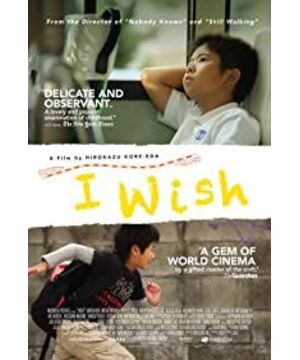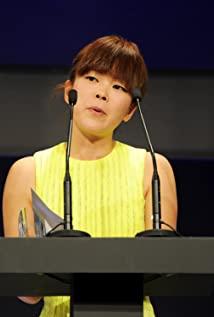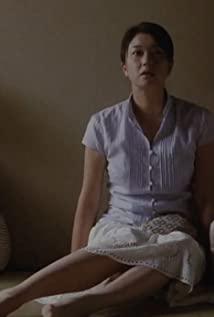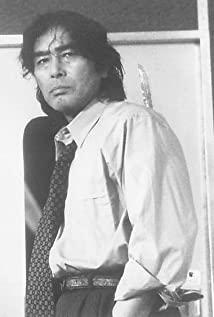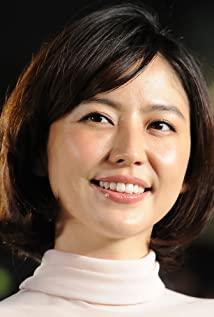"If there is one thing in common in my films, it is that the irreplaceable and precious things are not outside of everyday life, but in the details of everyday life. In "Miracle", this may be presented in a fairly pure form out."
The miracle never happened.
The legend about "at the moment when the two trains meet, there will be a miracle, and the wish will come true." It did not come true. Two shinkansen galloped past, the children with their wishes shouted their wishes, the train went away, the shouting dissipated, and everyone left. The child who promised to bring the dead puppy back to life unzipped his schoolbag and stroked his dog "Small Marble", the body (corpse) became colder...it didn't come alive.
And Hang Yi, the protagonist who launched this "miracle trip", unexpectedly did not grant his wish at the last moment - "I hope the volcano erupts, so that grandparents and mothers have to move back to Osaka, and Father and brother reunite."
Hang said to his younger brother, "I didn't choose our family, I chose the world. I'm sorry."
It was Hirokazu-eda who used a set of "montage" shots to let the audience understand the reason why Hangichi didn't make a wish. More than a dozen daily clips flashed - blue popsicles after swimming in summer, the best leftovers at the bottom of potato chips bags, grandma's hands practicing yoga, mother's cooking, folded clothes, teacher's photo The encouragement from the shoulders, the coins dropped from the coin machine, the happy family of four by the platform, and the volcanic ash on the school uniforms was patted before entering the classroom...
If Hang Yi's wish comes true, all this will cease to exist.
The word "world" was uttered because of a previous phone call with my dad.
He asked his father on the phone, "Isn't my mother and I mean nothing to you?"
Dad said, "Of course not." "It's just that when you grow up, you have to be someone who doesn't just care about yourself, but also about other things, like music, like the world. You'll understand very quickly."
That's it, the miracle of the train meeting did not happen, but Hang Yi was concerned about things other than himself.
This is probably the real miracle Hirokazu Kore-eda wants to talk about - in our daily life, in the dull days that accumulate over time, we slowly grow and begin to understand life and the world.
Some people commented that the first 100+ minutes of the film were too bland and should have been tighter. Some people think that the 100-odd-minute long period is to pave the way for the final shouting at the Shinkansen, and it is worth the wait. But I feel that the real essence of this film is precisely the first half that makes people feel flat and long. The director is Hirokazu Kore-eda, who takes us to restore and watch life itself, a child's teacher, family, and friends, through the perspective of the two children, Koichi and Ryunosuke.
I liked almost every shot in front of me.
After swimming and taking the bus home, Hang Yi leaned against the window glass, the wind blew his wet hair, and he closed his eyes.
(I once saw Hirokazu Koreeda mention this scene in his book "Walking Forward", saying that it was a special arrangement, and he even went so far as to find a bus that could open the glass. Because when I was young, I felt it was very comfortable. , I hope the actors can also feel this kind of comfort.)
In order to raise money to buy tickets, Hang Yi and his friends lay on the ground and swept the bottom of the coin-operated machine with bamboo sticks, and finally swept out a dropped 100 yuan coin.
Hang Yi's friend likes the library teacher. In order to have a few more words with her, he stole the bell cover of her bicycle and pretended to pick it up and return it to her.
The down-and-out music-playing father brought his second son, Ryunosuke. Although life was tight, he still enjoyed it. He set off fireworks, played drums, played, and painted with his friends.
Ryunosuke and his friends passed by Octopus Maruko, and learned the tone of his father and talked to the shop owner.
After my mother attended the class reunion, she bought an electric duckling at the roadside stall, thinking of her son.
A group of children got lost in Kashima and met a kind old couple who took them in. Before leaving, some children asked them what they wished, hoping to make a wish for them and thank them for their kindness.
When grandpa took Hang Yi on the Ferris wheel, he looked at the volcano and said, "If a volcano can erupt, it means it is still alive and has energy." As if he was talking about himself.
All of them, like a rolled landscape painting, unfold in front of the viewer little by little, gradually forming a complete outline. Just as the director is Hirokazu Kore's own evaluation of "Miracle",
"If there is one thing in common in my films, it is that the irreplaceable and precious things are not outside of everyday life, but in the details of everyday life. In "Miracle", this may be presented in a fairly pure form out."
It's Hirokazu Kore-eda, a director who loves to shoot family themes, but he's not just shooting family. Only by understanding this can we understand his films better. He shoots society and the world through family. In "Miracle" In the movie, not only the father chose the music, the son chose the world, and even the grandfather chose the world.
Hang Yi's grandfather was researching to recreate the traditional food "light soup", worried that young people would not like the taste. Some people suggested that the white light soup be dyed with cherry blossom powder that young people like, which might sell better, but grandpa refused.
"After I die, how will I face the ancestors of Wagashi," said the grandfather.
"Your daughter and grandson are more important or your grandfather is more important?" Grandma asked back.
"Grandpa is important."
I guess this is a kind of stubbornness and choice like Hirokazu Koreeda.
In "Things I Was Thinking While Filming", it was Hirokazu Koreeda who said that he was using "dead people" and "children" to replace "gods", and used them to criticize the role of current society. When I watched the movie "Miracle", I couldn't help but think of Schopenhauer's explanation of childhood in the book "The Wisdom of Life" - "To know the essence of life through a single scene and a single event is to use the eternal Looking at people and things from an angle, the younger we are, the more a single thing we see represents the whole of that kind of thing.”
I think this may be something that even the director Hirokazu Kore-eda didn't think of. Why does the movie "Miracle", a movie from the perspective of a child, show life itself more purely than his other movies.
View more about I Wish reviews


